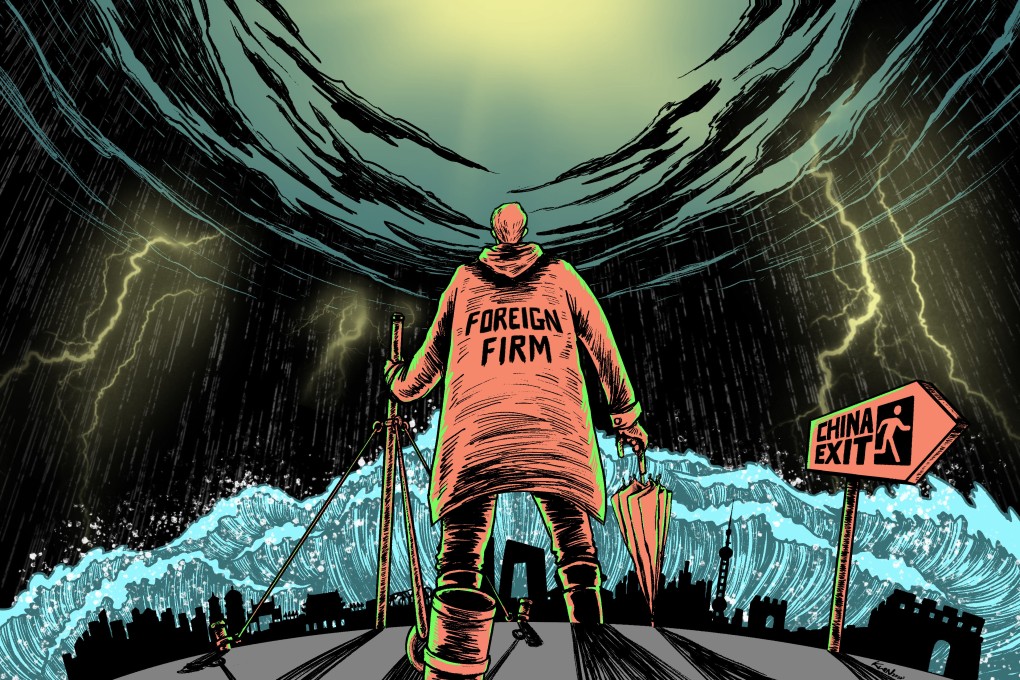China’s foreign firms, struggling to survive, hunker down for whatever comes next
- Greater Bay Area insiders say many multinational firms are scaling back plans in the southern business hub, but many will do all they can to maintain a China presence
- Persistent zero-Covid restrictions, supply-chain upheavals and geopolitical conflicts have taken some of the shine off China’s appeal as a foreign investment destination

Sitting on the fence may appear to be a precarious position for China’s foreign businesses in a time of unprecedented difficulties and uncertainties. But for some, the wait-and-see approach remains their safest option – at least for now.
Even in one of China’s most economically dynamic regions – the Greater Bay Area – several foreign firms that are intent on maintaining a presence in the country continue to put off expansion plans or have begun scaling back operations, according to business insiders and representatives.
This comes after more than two years of strict and sometimes unscientific coronavirus controls, supply-chain problems, and a deterioration in bilateral relations with Western countries.
“Japanese companies and other foreign companies are downsizing their operations in China,” said Tace Chen, a senior executive at a Japanese consultancy firm in Guangzhou who declined to identify her business due to the sensitivity of the issue.
“We will not leave China unless we have to, but we also lack the motivation to increase investment,” Chen said.